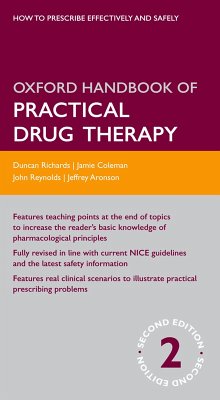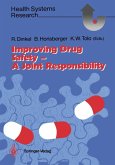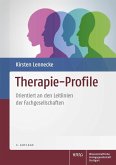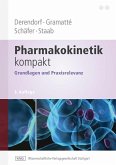Safe and effective prescribing is a cornerstone of proper patient care. There has in recent years been a significant increase in the numbers of healthcare professionals able to prescribe; however, sources of drug information tend to focus on only one area of prescribing. The Oxford Handbook of Practical Drug Therapy links practical information about how to use medicines with concise details about the pharmacology of a drug, and the principles of clinical pharmacology that govern its action. The overall structure of this handbook is similar to the UK national formulary, with topics on each drug arranged broadly by therapeutic category. When a drug has several different uses, these are brought together in a single topic, allowing the reader to appreciate its full range of actions, whether therapeutic or adverse. Each drugs topic provides information in a clearly laid out and standardised form, and includes a graphical representation of the pharmacological actions of the drug, and its potential uses, practical advice on a drug's major indications, a list of common and serious adverse effects, major drug-drug interactions, practical advice on monitoring for therapeutic and adverse effects, and what to tell the patient. Teaching points throughout the text draw out pharmacological principles, so that readers can increase their basic knowledge by linking theory with practical examples. Also included are several boxes giving guidance on the approach to therapy of specific diseases an clinical problems. In some cases, algorithms for the treatment of medical emergencies are given, and this new edition features case histories throughout the text to illustrate the issues one may face in practical prescribing. The Oxford Handbook of Practical Drug Therapy brings together for the first time in a single book really practical information on safe prescribing, with the background knowledge that underpins clinical pharmacology. Fully revised with new guidance and important safety information, this book is aimed primarily at medical students and trainees, it will also be invaluable to family doctors, clinical pharmacists, and nurse prescribers.
Dieser Download kann aus rechtlichen Gründen nur mit Rechnungsadresse in A, B, BG, CY, CZ, D, DK, EW, E, FIN, F, GR, HR, H, IRL, I, LT, L, LR, M, NL, PL, P, R, S, SLO, SK ausgeliefert werden.









